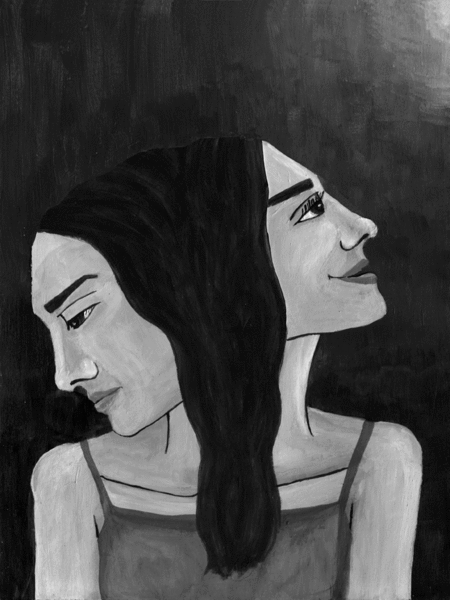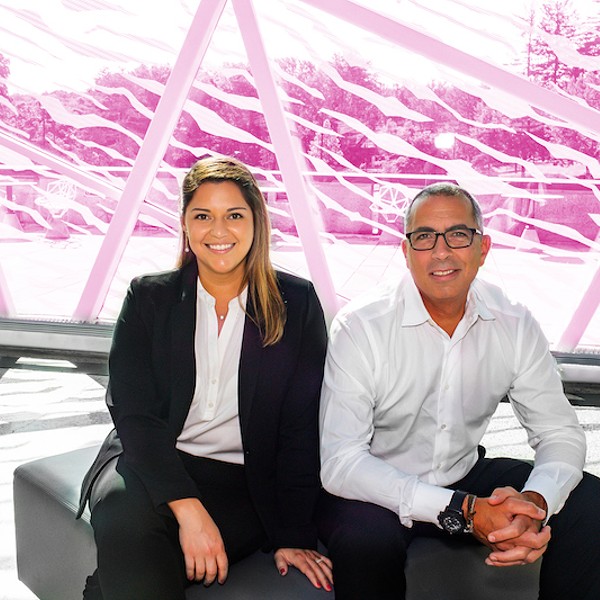A few months ago I met Melanie Williams by chance at a cafe we both frequent. Her buoyant energy caught my attention and we began to chat. I would never have guessed from her humor and optimism that she had recurrent cancer. I asked if she would share some thoughts with Chronogram’s readers about how she keeps so upbeat and enjoys living—not just coping—with illness. She has kindly done so, and I thank her, along with Debby, Puja, Richard, and Wendy, for sharing herein their insights.
Fun and the X Factor
Melanie Williams, a project manager for IBM, lives in Rhinebeck with her husband. She is a survivor of breast cancer with three metastatic recurrences. “My doctor has always said my attitude is what’s pulled me through,” says Melanie. “Attitude is everything—it really is. The doctors and treatments can only do so much. You are the ‘X factor’—the one who is going to make the difference.” Yes, she was stunned by the original diagnosis, and the news of recurrence. “I could feel myself slipping when I lost that attitude.” But now she knows recurrence is not uncommon over the years. Because stress may be partly to blame, she took her recurrence as a wake-up call. “I knew I needed to work on the life-and-work balance,” she says. “I’ve always been a goal person, so the future was always important in my planning and I wasn’t paying attention to the here and now. In my job I’d gone far too much into my logical, mathematical side, not keeping in touch with the more creative side.”
Williams realized she needed to go back to what made her happiest from years ago, even in her teens. “Everybody had a pre-sick moment,” she says. “You have to tap back into that. I draw, sing, play my guitar, go swimming—all those hobbies and the creative side I used to enjoy.” She writes poetry again, dances around the house to ’70s music, listens to opera and the stirring voice of Andrea Bocelli. “There were times when I put headphones on and listened to music that was going to make me cry.” She laughs. “Having emotions stirred in a positive way helps healing.” She praises the movement and exercise of dance, or of just going outdoors for a walk in the fresh air. “It releases stress—a major contributor to cancer—and you feel freer and more positive by getting your body moving, and the blood and the brain flowing.”
Williams exudes joviality, and says she finds humor in many things. “It’s very important—it raises your endorphins, which helps your immune system. Of course, I wasn’t always laughing, but there a lot of funny things happening if you have the right attitude, even in the chemo room,” Williams says, adding that it helps that she has always been optimistic. “I believe everything happens for a reason, and I still believe that. You’re there [with the illness] because there is something unraveling and you have to dig into that and figure it out. There is something to learn, and I focus on that.” She also knows that anyone can die at any moment, so there’s no reason to put off enjoyment until tomorrow. At the same time, she reads books about true, remarkable recoveries from traumas. “These books will show you that people can survive beyond all expectations,” she says. “So if you tap into that, and understand why they did, you can help incorporate that into your life. Often they had something they really wanted to live for.”
Spiritual Midwifery
Therapist Deborah (Debby) Franke Ogg of Shokan specializes in helping people transform life-threatening illness into positive growth and deepened self-awareness. Called by some a “spiritual midwife,” Debby knows the terrain: in 1984 she was diagnosed with end-stage, “incurable” lymphoma. With that dire news, she had the tumor biopsies evaluated by four medical facilities; they concurred on the prognosis, but the recommended treatment varied. When one suggested a wait-and-see approach (because it was unlikely that chemo and radiation would help at that point), Debby began what she calls “a long, sometimes terrifying pursuit of very specific information that would guide me to healing. I thought that if I got myself from dis-ease to disease, it was possible to reverse the disease by understanding what got me there.”
That launched her into a multifaceted exploration that drew on psychotherapy, massage, acupuncture, meditation, exercise, yoga, organic foods, and more. Meditation was especially helpful. “Meditation quiets the mind so you can access the information that, I believe, we all can have access to,” she says. “Much comes to you about what’s good for you and what isn’t. To me, it’s direct connection to spirit. It gave me very specific information as to what I needed to heal.” Today, Debby is in remission, and has been for many years without having had chemotherapy or radiation. She skipped those because doctors had no hope that such treatments would save her, but emphasizes, “I feel it’s very important that when there is something that medicine is offering, it needs to be taken.” Her story was the basis for the 1988 feature film Leap of Faith (also called A Question of Faith), directed by Stephen Gyllenhaal.
Ogg sees her illness as a “diving board into wellness,” and as a therapist helps others who are seriously ill. “I assist people in understanding what lessons have been placed before them that they may not be seeing,” she says, “so they can use those lessons to come to the light. Understanding yourself, how you got there, what areas of discomfort or dis-ease you have been walking around with—in shifting those, you are not as hospitable to disease. Everything is interconnected, so that physiology can be altered by a more comfortable emotional state. Working with the mind-body-spirit connection, you have the whole picture, and everything is possible.” She acknowledges that sometimes the path leads to leaving the body—that is, death. “The path is really the soul’s path, and it must be respected,” she says. “It’s one’s contract with the creator. I help people see how disease comes into the picture and how one can be brought to healing, whether in life or in death.”
A Bookful of Help
Puja Thomson is a cancer survivor and health professional whose award-winning book, After Shock: From Cancer Diagnosis to Healing (Roots & Wings, 2006), helps others navigate the many hurdles of a cancer diagnosis and treatment. The support of friends who understood her wishes and needs was invaluable in getting through it. “I knew that friends supported me, and were praying for me, and they knew I wanted to consider complementary approaches. That maximized my emotional and spiritual health, not just my body’s health. I would sometimes come out of doctors’ offices with more fear than going in,” Thomson recalls, “especially if I questioned them, and when they quoted cancer statistics. That can feel very scary. Friends were helpful in getting information for me when I was too overwhelmed to do the research myself. They could continue to ask questions and clear things up, so that fear wasn’t brewing.”
Thomson’s book is filled with suggestions and encouragement for staying centered, such as through meditation, breathing exercises, guided imagery, music, poetry, and much more. She highly recommends guided imagery tapes and CDs, which she listened to regularly, such as the “Health Journeys” series by Belleruth Naparstek (www.healthjourneys.com). They have spoken affirmations and guided journeys that are specific to different illnesses and treatments. “The affirmations give the body a powerful message to be well, to let go of judgment and blame,” says Thomson, who listened to them before and after surgery. At home, she would sometimes allow herself to drift into a nap in the afternoons in the relaxing “zone” induced by the healing imagery. Thomson also suggests meditation cards as a simple but powerful tool. There are several varieties—such as angel cards, heart cards, goddess cards, and many varieties of tarot—that have words, phrases, or readings that can become a healing focus for the day, instead of getting stuck in negative thinking, which can depress not only one’s mood but also one’s healing abilities.
During her illness, and still, Thomson seeks connection to nature and living things and urges others to go outside or bring nature indoors. “Nature is the grounder and the healer,” she says. “I go for walks and get outdoors. I have hyacinth blooming indoors, even now, in winter. Flowers, colors, scents, things that give you pleasure—allow yourself things like that.”
Because Thomson is a practitioner in the healing arts, she knows that healers who get sick tackle an additional question: “How can I be a practitioner if I can’t be well myself?” Though she doesn’t blame herself for causing the cancer, she nonetheless used it to become more vigilant about improving her daily life. “I had to ask myself, ‘What am I not doing?’ I had to become more conscious of things I had let slip, like letting my sweet tooth get out of hand, or being less faithful with exercising.”
A Soldier Traveling
Author Richard Boes from Rhinebeck is penning the last volume in a trilogy of books in spite of cancer that, formerly in check, has returned with a vengeance. He didn’t foresee a trilogy when he finished the first book, The Last Dead Soldier Left Alive (iUniverse, 2007), which blends fiction with a documentation of what his life has been like as a disabled Vietnam veteran. But having recently completed the second, Last Train Out (iUniverse, 2008), to resounding praise, he is under way with In the Valley of Dry Bones. “It’s about right where I’m at, right now,” he says, which is with the cancer that he cedes is going to win. “It ends when I stop,” he says about the chances he’ll complete the book. Boes’s life as a combat soldier put him within death’s reach many times, so he’s seen it all his adult life. “It’s no stranger to me,” he says, and he finds ways to accept it without feeling sorry for himself. “I’m dealing with the reality that the cancer has spread all over, so there is not much of a future. It’s a difficult pill to swallow. Now I kind of try to put it into perspective, that it’s the natural flow of life. When I’m in that frame of mind, it’s easy to accept, and I’m eager to move on.” He realizes that Last Train Out may become very successful, and wishes he could see that. “Sure, I’d like some more years—like 20.” He chuckles quietly and adds, “But my job was to write the book. So instead of feeling sorry that I’m not going to see the success, it’s a blessing that I got to finish it. I try to keep that kind of attitude.” Even though that frame of mind can be elusive sometimes, he finds it again by reviewing the good things. “I look at what I have to be grateful for. It’s hard to be angry or have negative emotions if you’re grateful.”
Boes continues his usual activities each day as best he can. “A lot of dealing with this is to keep living your life, continue your routine. I’m a writer, so I try to write six hours a day.” Over the years he has become interested in scripture and finds reading the psalms comforting. “You can kind of pick those up anywhere to read,” he says. “I use a lot of quotes from them in what I’m writing now. I gave one to my father when he was real sick a couple of years ago. He was full of anxiety and scared to die. I found a psalm and wrote it in a letter to him, and I told him he’d been a good man, and had provided well for his family, and that he had nothing to fear. He calmed down a little, and wasn’t so afraid to die.” Later, after Boes’s father passed away, his mother found the psalm in the night table by his father’s bed.
Boes says he can’t side with Dylan Thomas’s assertion that one must “rage against the dying of the light” when death is at hand. “I totally disbelieve that,” he says. “It’s macho bullshit. Dylan Thomas fell off a barstool and died. He was a drunk. I don’t adhere to that. I adhere to having a certain amount of dignity and grace.”
Telling Your Story
Although Wendy Drolma does not herself have a serious illness, she is in training through the New York Zen Center for Contemplative Care to be a chaplain. As part of her training she volunteers at Benedictine Hospital as an “active listener,” sitting with patients with serious illnesses so they have someone to talk to. “Active listening is listening with the whole body, mind, and heart, listening with every pore of yourself, really opening up to another person and their story.” Drolma sees a real need for multidenominational or nondenominational listening. “Typically you have priests at the hospital, but most of the people in the hospital are not practicing any one religion,” she says. “The Buddhists are entering this realm with a different perspective on the role of a chaplain, rather than the Judeo-Christian role.” The Buddhist orientation focuses on active listening.
A common thread Drolma finds in her work is the power of being heard. “One of my teachers in New York, Trudy Hirsh Abrahamson, says you cannot not tell your story—meaning that everything a person says is part of their story,” Drolma says, adding that some people seem to accept what’s happening to them, “not in a defeated way, but a feeling of it being another part of the story of their lives, while others seem really taken down by it. How people deal with illnesses in a good way seems very related to the people around them.” By listening nonjudgmentally to a patient’s fears and concerns, and whatever they wish to say in the moment, she hopes to bring some comfort. Although she humbly questions whether she is any help, Drolma also has seen that “the healing that takes place is palpable.”
Dealing with a life-threatening illness is never easy, but continuing to find ways of having fun, being creative, enlisting the help of friends, connecting with nature, getting exercise, and sharing one’s story are some of the ways to keep illness a facet, not a focus, of life.

















